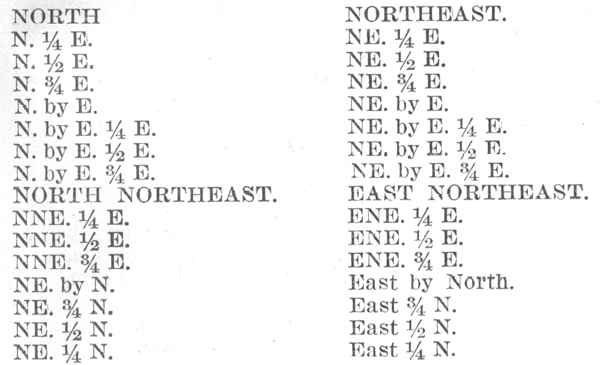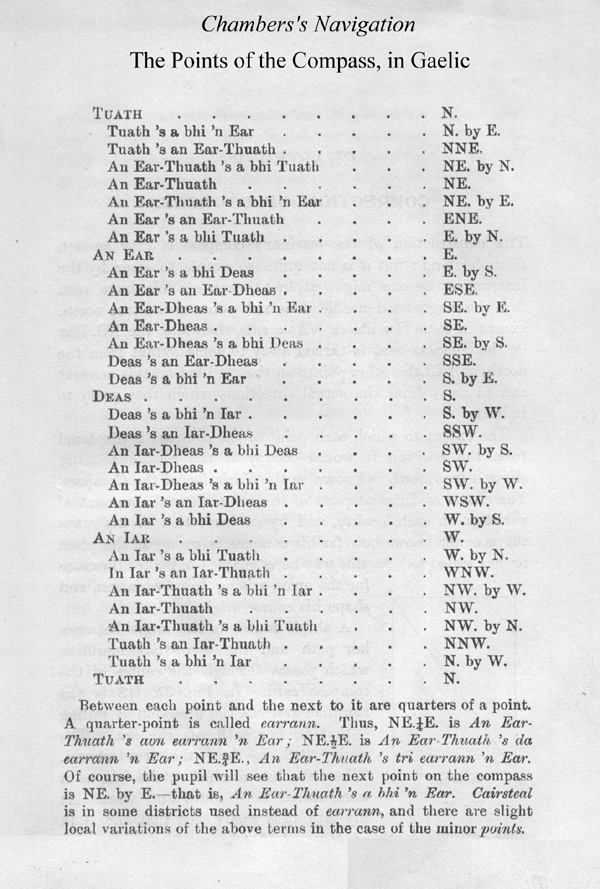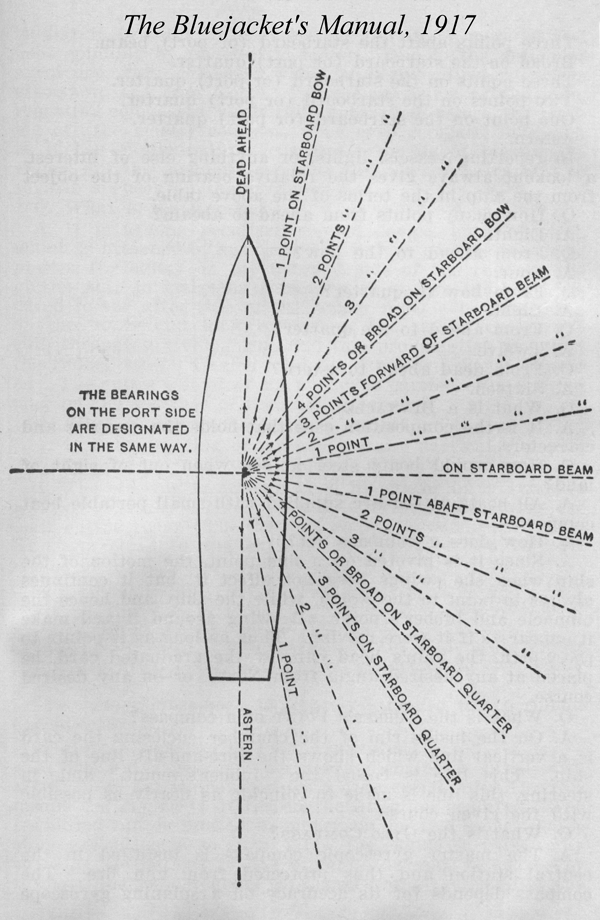The Compass

"The Points of the Compass"
"Boxing the Compass" was a basic skill of any sailor, being the ability to repeat all 32 points of the compass (in 1/4 points). A "point" is in fact 11 1/4 degrees, the modern compass being divided into 360 degrees, 0 (or 360) being North, 90 East, etc.
At the beginning of the 20th century, Gaelic was still a common
language in Scotland...

Bearings
Using points of the ship as reference:
"Helm" and "Rudder" Orders
The following description is from Seamanship in the Age of Sail, by John Harland (Naval Institute Press, 1984):Orders to the helmsman were traditionally given in terms of "helm", that is to say, the position of the tiller rather than the rudder. 'Hard a-starboard!' meant "Put the tiller (helm) to starboard, so that the ship may go to port!'. It will be realised that not only the bow turned to port, but also the rudder, top of the wheel, and prior to the advent of the steering-wheeo, the upper end of the whipstaff. Cogent reasons existed, therefore, for giving the order in what one might call the 'common sense' fashion. The transition to 'rudder' orders was made in many European countries about a century ago, being decreed for example, in the Royal Swedish Navy by General Order 609 of 1872. The change did not proceed smoothly everywhere, since old traditions died extremely hard in the merchant service, even in lands where the new convention was readily imposed in naval vessels...In the United Kingdom, the changeover did not occur until 1933, at which time the new regulations were applied to naval and merchant vessels alike...Although the United States Navy made the switch from 'Port helm!' to 'Right rudder' in 1914, practice in American merchant vessels did not change until 1935.
This means that during World War One, the ships of the British Empire and Commonwealth, as well as US merchant shipping, would indeed turn "opposite" to the order given. This may cause confusion when looking at ships' logs, for example.
Return to WWI The Maritime War
Return to WWI Archive main page.
Last Updated: 1 April, 1998
 The Basics
The Basics